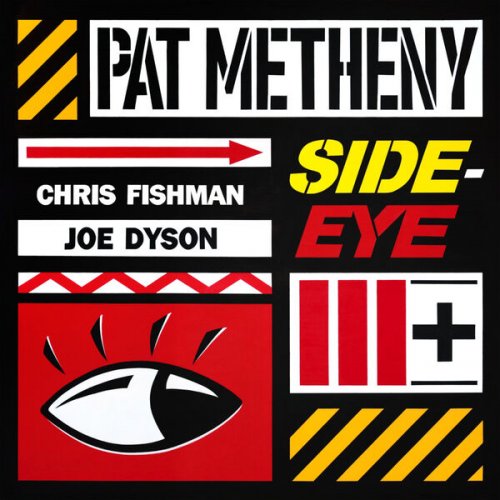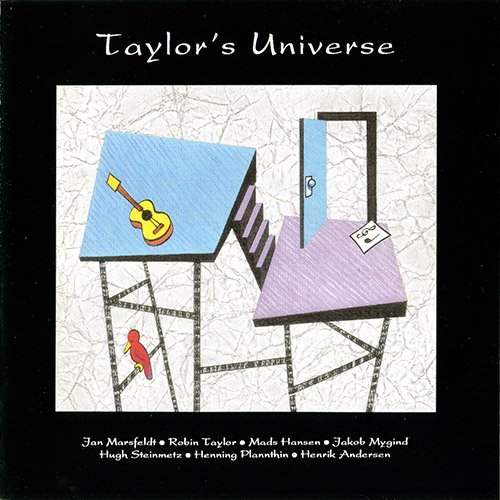Sencalar / Glassman Quintet - Realization (2020)
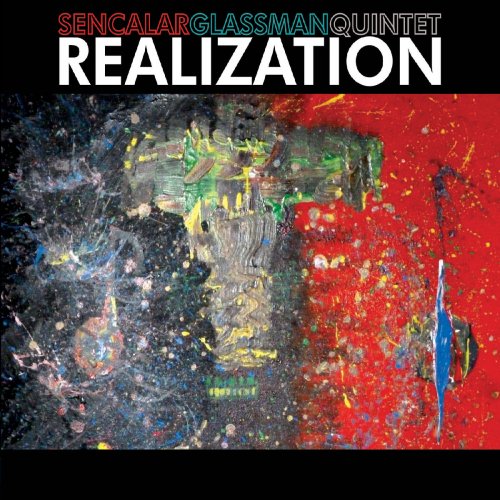
Artist: Sencalar / Glassman Quintet
Title: Realization
Year Of Release: 2020
Label: D Clef Records
Genre: Jazz, Bebop
Quality: FLAC (tracks)
Total Time: 66:21 min
Total Size: 401 MB
WebSite: Album Preview
Tracklist:Title: Realization
Year Of Release: 2020
Label: D Clef Records
Genre: Jazz, Bebop
Quality: FLAC (tracks)
Total Time: 66:21 min
Total Size: 401 MB
WebSite: Album Preview
01. D Is for Dastardly
02. In Your Own Head
03. Impressions
04. When Reality Sets In
05. Nobody Else but Me
06. It's No Wonder
07. What Was Good Is Good
08. The Maze
09. The Big D
10. Shortcake
11. Realization
In jazz or any music for that matter, there’s nothing quite like low brass. And within that family, there’s nothing like the trombone — warm and lyrical as a cello, yet able to swing hard and stand out in any ensemble, summoning the widest range of emotion and expression. Altin Sencalar and Chris Glassman, with their co-led debut Realization, have found their own way of showcasing the instrument to its fullest sonic potential: combining the tenor trombone (Sencalar) and bass trombone (Glassman) in one frontline unit.
Of course, they are continuing in the footsteps of dual-trombone bands most famously represented by J.J. Johnson and Kai Winding (also Conrad Herwig and Steve Davis, Wycliffe Gordon and Andre Hayward, Jim Pugh and Dave Taylor, Mike Davis and Bill Reichenbach and other memorable pairings). Yet the swinging, harmonically savvy arrangements heard on Realization brim with the confidence of young musicians putting their own stamp on a lineage they treasure.
“The trombone is thought by many to be the closest horn to the human voice,” says Glassman, “and we liken the two-trombone sound to a vocal duet.” What’s more, bass trombone captures the best of both worlds, Glassman continues: “You can play with a singing and warm upper register and then when the need arises you can lay out the heavy artillery in the lower register. I know it’s a very unusual solo instrument and only a handful of jazz players really improvise on it — Max Seigel, Bill Reichenbach, Reggie Chapman, Gina Benalcazar, Jeff Nelson and Jennifer Wharton come to mind. I like that sort of ‘uncharted territory’ aspect of it.”
Sencalar and Glassman hail from Texas and Colorado, respectively. They spent their undergrad years in their home states before meeting in 2017 as graduate assistants at Michigan State University. There in East Lansing they studied under Michael Dease, easily one of the top trombone virtuosos of our time, and bassist Rodney Whitaker, MSU’s Director of Jazz Studies, “truthfully the most swinging cat since Paul Chambers,” Sencalar contends. “He plays exactly how everyone’s dream bass player would play, and it really cemented the whole project together.” Under these great professor-colleagues, Sencalar and Glassman came into their own as artists, and that’s what Realization truly means: “This album is centered around growth, evolution and the good and bad that go along with it. It’s a culmination of two years and it reflects the challenges, triumphs and cathartic moments one experiences during extended periods of being ‘at the grindstone.’”
Co-producer Dease, “the brains behind the session” according to Glassman, is featured to great effect on the opening Glassman original “D Is for Dastardly.” On this tune the co-leaders take inspiration from Art Blakey’s shuffle feel in “Down Under” (an implicit shout-out to Curtis Fuller, perhaps); from the form of Wes Montgomery’s “Unit Six”; and from the kind of stop-time handclapping heard in Christian McBride’s “Used ’Ta Could” (not to mention Mingus’s “Better Git It in Your Soul”). Glassman and Sencalar also tackle what Dease calls his hardest tune, “The Big D,” a darting line on rhythm changes that originally appeared on Dease’s 2015 record Decisions. The melody voiced starkly in octaves by the bones, the cascading chord substitutions navigated by the soloists on some of the A sections, the inspired round of fours to bring it home: there’s something cathartic about nailing a technical achievement like “The Big D,” and in such a relaxed, unperturbed fashion at that.
But to be clear, this is not an album of wall-to-wall trombone straight through. Guitarist Nathan Borton (on six tracks) and pianist Addison Frei each get prominent solo room and function seamlessly together within the arrangements. Borton is Sencalar and Glassman’s MSU classmate and close confidant, “a highly underrated guitarist,” Glassman says, “whose dizzying lines and comfortable time feel fit the group so well. He rolls with the punches whether it’s functioning as a horn, or the only comping instrument, or in tandem with piano.” “We are truly spoiled by this band,” Sencalar chimes in. “We felt like we were dreaming. We were absolutely dumbfounded by Addison, both his playing and his easygoing personality. And working with [drummer] Zach Adleman just feels like home — his feel is great, he’s very creative and knows the tunes supremely well.”
One of those tunes, “The Maze” from Herbie Hancock’s 1962 debut Takin’ Off, is a double homage — not only to Hancock but also modern trombone great Steve Davis, whose arrangement on his 2006 release Update proved an inspiration to the co-leaders. “‘The Maze’ seeks to portray the unknown” says Glassman, “and it highlights the confusion and searching one must do when coming of age.” Tenor saxophonist and friend Jason Hainsworth arranged “Short Cake,” from the 1967 classic The Total J.J. Johnson, as a showcase for the two co-leaders and the kinds of harmonized, contrapuntal and call-and-response textures they can create (with a fine Whitaker bass solo as well). Coltrane’s “Impressions,” in Addison Frei’s vibrant arrangement, brings alternate Tyner-esque harmonies and complex written figures into play, setting up bracing solos from Glassman, Borton, Frei and finally Sencalar on the open-vamp outro. And the standard “Nobody Else But Me,” arranged by guitarist, MSU teaching colleague and band friend Randy Napoleon, extends the album’s coming-of-age theme: it’s about “discovering and exploring the authentic self,” Sencalar offers, “and we both desire to be nobody else but ourselves.”
Sencalar’s three originals are finely sculpted, steeped in idiomatic knowledge. “In Your Own Head” is intricate and elegant in a bossa feel, with a shift to samba toward the end that represents the ceaseless rush of thoughts in a person’s mind. The tune also tries to capture “the second-guessing and insecurities that some might go through during periods of growth.” “What Was Good Is Good,” titled after a favorite saying by Jimmy Heath, is tight and swinging bebop based on “Confirmation,” with a reharmonized bridge and a surprising duo breakdown at the start of Glassman’s solo, following Sencalar’s two exemplary choruses. And “When Reality Sets In,” a relaxed bolero in acknowledgement of Sencalar’s Latin roots, finds the trombones in full legato glory. The shifting minor/major sonorities suggest “an opportunity to see hope through a trying time,” says the composer.
Glassman, in addition to the leadoff track, contributes the easygoing “It’s No Wonder,” which finds bass trombone voicing the melody up high before dropping down to harmonize with Sencalar’s radiant tenor. The tune is “about heredity, and how it’s no wonder we are who we are,” Glassman says. Specifically, he wrote it for his supportive parents, making use of one of their favorite sounds — the kinds of secondary dominants and passing diminished chords favored by Stevie Wonder.
Finally, Glassman’s “Realization,” the closing title track, is arranged by baritone saxophonist Joseph Herbst, an MSU classmate now based in Asheville, North Carolina. The tune has a dark and knotty quality but a classic vibe somewhat reminiscent of Horace Silver and Gigi Gryce. Don’t miss Glassman’s striking entrance after the richly voiced head (as if anyone could miss it). This is “the most extensive and through-composed arrangement” of the set, Glassman notes, and it “deals with the disquieting and uncomfortable moments before a moment of revelation. It’s inspired by Dizzy Gillespie’s ‘Con Alma’ and the standard ‘Softly as in a Morning Sunrise,’ and the harmonically uncertain bridge tries to capture how change can truly make or break someone.”
Whatever challenges music and life have thrown in the path of Sencalar and Glassman, Realization makes it plain that they have risen to the occasion and responded well indeed. Sought after as sidemen with the likes of Christian McBride, Slide Hampton, Etienne Charles and Ulysses Owens, they’ve been bringing their group out for festival appearances as well as educational initiatives like their “Welcome Home Tour” through East Lansing’s elementary schools, working to spread the values of jazz education. It’s never too early in one’s career to give back, and that spirit of generosity and budding wisdom comes through on Realization, first note to last.
— David R. Adler
Of course, they are continuing in the footsteps of dual-trombone bands most famously represented by J.J. Johnson and Kai Winding (also Conrad Herwig and Steve Davis, Wycliffe Gordon and Andre Hayward, Jim Pugh and Dave Taylor, Mike Davis and Bill Reichenbach and other memorable pairings). Yet the swinging, harmonically savvy arrangements heard on Realization brim with the confidence of young musicians putting their own stamp on a lineage they treasure.
“The trombone is thought by many to be the closest horn to the human voice,” says Glassman, “and we liken the two-trombone sound to a vocal duet.” What’s more, bass trombone captures the best of both worlds, Glassman continues: “You can play with a singing and warm upper register and then when the need arises you can lay out the heavy artillery in the lower register. I know it’s a very unusual solo instrument and only a handful of jazz players really improvise on it — Max Seigel, Bill Reichenbach, Reggie Chapman, Gina Benalcazar, Jeff Nelson and Jennifer Wharton come to mind. I like that sort of ‘uncharted territory’ aspect of it.”
Sencalar and Glassman hail from Texas and Colorado, respectively. They spent their undergrad years in their home states before meeting in 2017 as graduate assistants at Michigan State University. There in East Lansing they studied under Michael Dease, easily one of the top trombone virtuosos of our time, and bassist Rodney Whitaker, MSU’s Director of Jazz Studies, “truthfully the most swinging cat since Paul Chambers,” Sencalar contends. “He plays exactly how everyone’s dream bass player would play, and it really cemented the whole project together.” Under these great professor-colleagues, Sencalar and Glassman came into their own as artists, and that’s what Realization truly means: “This album is centered around growth, evolution and the good and bad that go along with it. It’s a culmination of two years and it reflects the challenges, triumphs and cathartic moments one experiences during extended periods of being ‘at the grindstone.’”
Co-producer Dease, “the brains behind the session” according to Glassman, is featured to great effect on the opening Glassman original “D Is for Dastardly.” On this tune the co-leaders take inspiration from Art Blakey’s shuffle feel in “Down Under” (an implicit shout-out to Curtis Fuller, perhaps); from the form of Wes Montgomery’s “Unit Six”; and from the kind of stop-time handclapping heard in Christian McBride’s “Used ’Ta Could” (not to mention Mingus’s “Better Git It in Your Soul”). Glassman and Sencalar also tackle what Dease calls his hardest tune, “The Big D,” a darting line on rhythm changes that originally appeared on Dease’s 2015 record Decisions. The melody voiced starkly in octaves by the bones, the cascading chord substitutions navigated by the soloists on some of the A sections, the inspired round of fours to bring it home: there’s something cathartic about nailing a technical achievement like “The Big D,” and in such a relaxed, unperturbed fashion at that.
But to be clear, this is not an album of wall-to-wall trombone straight through. Guitarist Nathan Borton (on six tracks) and pianist Addison Frei each get prominent solo room and function seamlessly together within the arrangements. Borton is Sencalar and Glassman’s MSU classmate and close confidant, “a highly underrated guitarist,” Glassman says, “whose dizzying lines and comfortable time feel fit the group so well. He rolls with the punches whether it’s functioning as a horn, or the only comping instrument, or in tandem with piano.” “We are truly spoiled by this band,” Sencalar chimes in. “We felt like we were dreaming. We were absolutely dumbfounded by Addison, both his playing and his easygoing personality. And working with [drummer] Zach Adleman just feels like home — his feel is great, he’s very creative and knows the tunes supremely well.”
One of those tunes, “The Maze” from Herbie Hancock’s 1962 debut Takin’ Off, is a double homage — not only to Hancock but also modern trombone great Steve Davis, whose arrangement on his 2006 release Update proved an inspiration to the co-leaders. “‘The Maze’ seeks to portray the unknown” says Glassman, “and it highlights the confusion and searching one must do when coming of age.” Tenor saxophonist and friend Jason Hainsworth arranged “Short Cake,” from the 1967 classic The Total J.J. Johnson, as a showcase for the two co-leaders and the kinds of harmonized, contrapuntal and call-and-response textures they can create (with a fine Whitaker bass solo as well). Coltrane’s “Impressions,” in Addison Frei’s vibrant arrangement, brings alternate Tyner-esque harmonies and complex written figures into play, setting up bracing solos from Glassman, Borton, Frei and finally Sencalar on the open-vamp outro. And the standard “Nobody Else But Me,” arranged by guitarist, MSU teaching colleague and band friend Randy Napoleon, extends the album’s coming-of-age theme: it’s about “discovering and exploring the authentic self,” Sencalar offers, “and we both desire to be nobody else but ourselves.”
Sencalar’s three originals are finely sculpted, steeped in idiomatic knowledge. “In Your Own Head” is intricate and elegant in a bossa feel, with a shift to samba toward the end that represents the ceaseless rush of thoughts in a person’s mind. The tune also tries to capture “the second-guessing and insecurities that some might go through during periods of growth.” “What Was Good Is Good,” titled after a favorite saying by Jimmy Heath, is tight and swinging bebop based on “Confirmation,” with a reharmonized bridge and a surprising duo breakdown at the start of Glassman’s solo, following Sencalar’s two exemplary choruses. And “When Reality Sets In,” a relaxed bolero in acknowledgement of Sencalar’s Latin roots, finds the trombones in full legato glory. The shifting minor/major sonorities suggest “an opportunity to see hope through a trying time,” says the composer.
Glassman, in addition to the leadoff track, contributes the easygoing “It’s No Wonder,” which finds bass trombone voicing the melody up high before dropping down to harmonize with Sencalar’s radiant tenor. The tune is “about heredity, and how it’s no wonder we are who we are,” Glassman says. Specifically, he wrote it for his supportive parents, making use of one of their favorite sounds — the kinds of secondary dominants and passing diminished chords favored by Stevie Wonder.
Finally, Glassman’s “Realization,” the closing title track, is arranged by baritone saxophonist Joseph Herbst, an MSU classmate now based in Asheville, North Carolina. The tune has a dark and knotty quality but a classic vibe somewhat reminiscent of Horace Silver and Gigi Gryce. Don’t miss Glassman’s striking entrance after the richly voiced head (as if anyone could miss it). This is “the most extensive and through-composed arrangement” of the set, Glassman notes, and it “deals with the disquieting and uncomfortable moments before a moment of revelation. It’s inspired by Dizzy Gillespie’s ‘Con Alma’ and the standard ‘Softly as in a Morning Sunrise,’ and the harmonically uncertain bridge tries to capture how change can truly make or break someone.”
Whatever challenges music and life have thrown in the path of Sencalar and Glassman, Realization makes it plain that they have risen to the occasion and responded well indeed. Sought after as sidemen with the likes of Christian McBride, Slide Hampton, Etienne Charles and Ulysses Owens, they’ve been bringing their group out for festival appearances as well as educational initiatives like their “Welcome Home Tour” through East Lansing’s elementary schools, working to spread the values of jazz education. It’s never too early in one’s career to give back, and that spirit of generosity and budding wisdom comes through on Realization, first note to last.
— David R. Adler
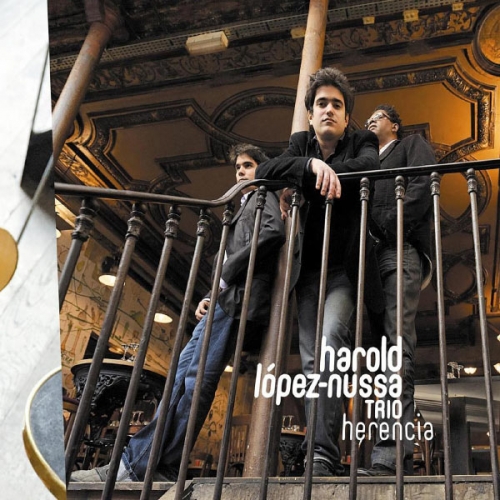


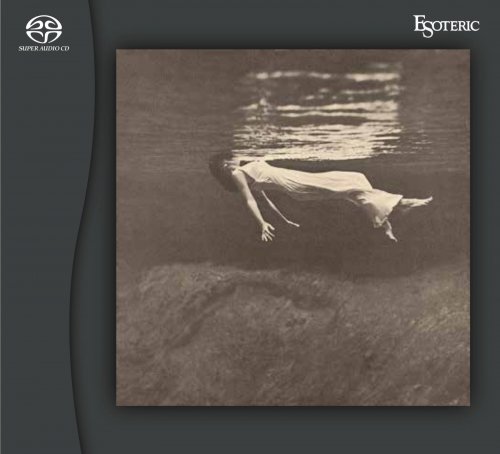
![Julian Lage - Scenes From Above (Japanese Edition Bonus Track) (2026) [SHM-CD] Julian Lage - Scenes From Above (Japanese Edition Bonus Track) (2026) [SHM-CD]](https://www.dibpic.com/uploads/posts/2026-02/1772029332_front.jpg)


